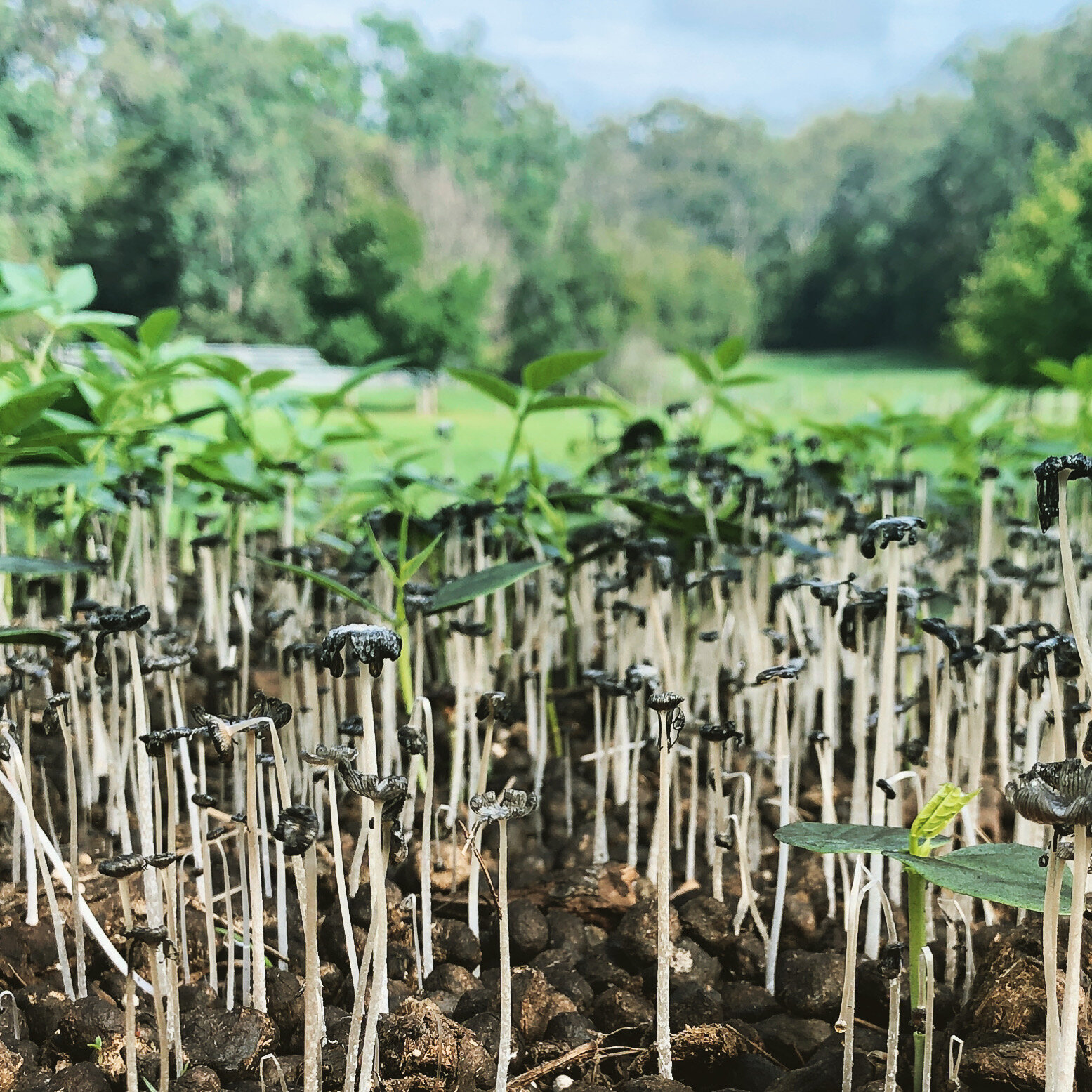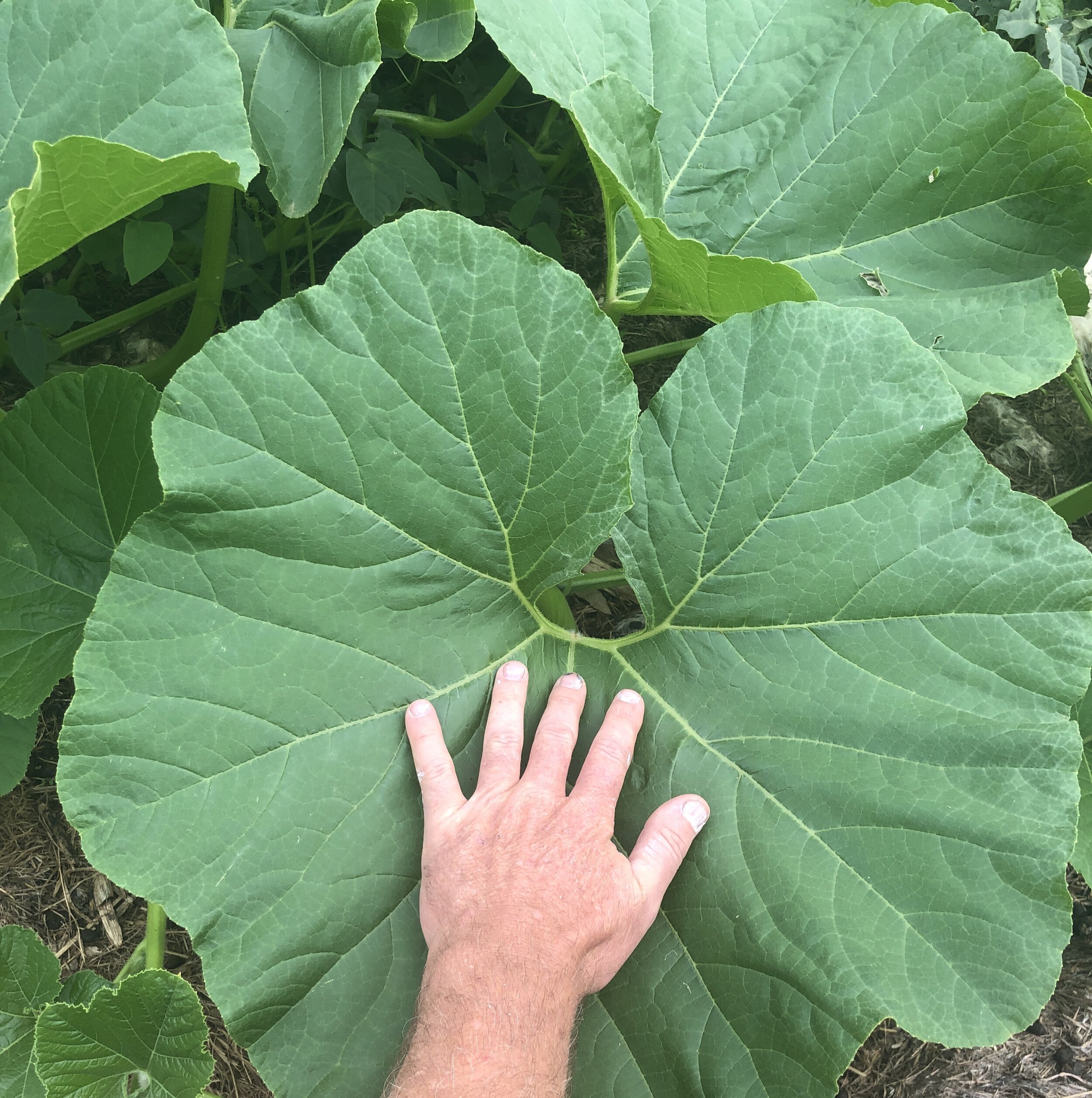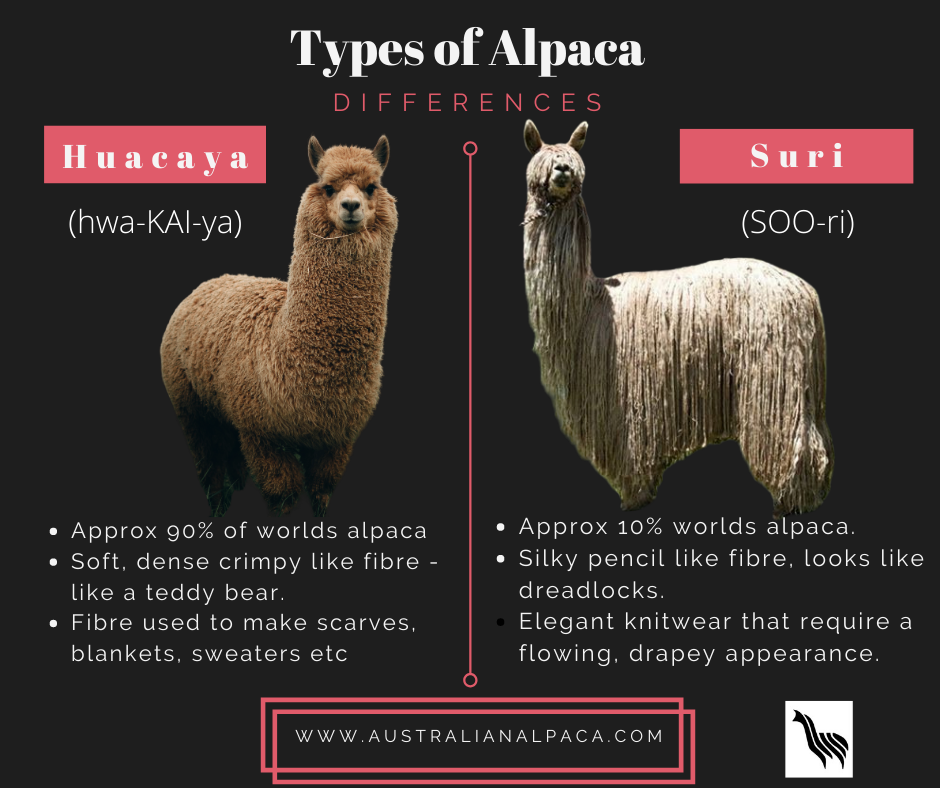IN THE MEDIA Baby alpacas aplenty with stud owners overjoyed by perfect conditions for breeding
/ByHamish Cole
Posted Thu 4 May 2023
Read MoreIN THE MEDIA Baby alpacas aplenty with stud owners overjoyed by perfect conditions for breeding
/ByHamish Cole
Posted Thu 4 May 2023
Read MoreAlpacas need shelter, please don’t let others convince you of anything different to that fact. The most essential & basic shelter are trees, they can provide deep shade in Summer and protection from rains and wind in Winter.
A permanent structural shelter with sides, is extremely important particularly for the protection of newborn cria and recently shorn alpacas. Simple shelters of poles and shade cloth can be erected in the absence of trees, but we highly recommend having a permanent shelter or shelters.
We have several different types of permanent shelters at Little Valley Farm. A 4 x 4 metre or larger is useful and can be used on your annual shearing day or in extreme weather conditions such as rain and windy conditions. Not all alpacas will use the sheds but it gives them the option and is extremely useful for penning them when necessary.
Fresh drinking water is a must in or around each shelter especially if penned. Alpacas will drink two to ten litres per day.
Feed bucket to help keep the feed dry avoiding mould build-up and helps reduce feed wastage.

Alpaca ‘Summer Palace’
Here are some examples of sheds we have. Below is our Alpaca Summer Palace with lots of extra shade provided by the trees and excellent cross ventilation inside. The shed has 1/2 earth and 1/2 brick floor. They prefer the earthen floor, we like the brick which stays drier longer. The shelter has opening shutters to control wind and light. Cold rainy days we close them but mostly they are open. The back are has two gates which can be closed if we need to catch them. The alpaca’s love sitting out the front of the shelter looking over the paddocks and towards the house.
Below is our Twin Shed is nicely situated in between two paddocks, so it is convenient when we do our weekly paddock rotation of the alpacas and mini donkeys. It also provides us a couple of pens to catch the Alpacas.
It has lot of cross ventilation and plenty of trees for deep shade on the northern side. The summer western sun is an issue but they move towards the large trees down the paddock on hot and sunny afternoons.
The drinking water trough is close by and they love the dirt floor to roll about in.

Twin Shed placed in between two paddocks

Twin Shed lot of gates to help create small pens and plenty of ventiliation with a solid wall to avoid the wind and rain.
Want to read more about managing your own herd? We have some great reading material to get you started. Click here. Attending one of our weekend workshops. Click here for workshop info.
More about Daniela and Euan at Little Valley Farm here.
Our compartmental alpaca float can move up to six (adult-sized) alpacas within the Hunter & Central Coast area.
Talk to us for more info and price based on pick up and delivery location and the number of alpacas.
Please only enquire about A L P A C A S. As we don’t move any other animals.
Please ensure paperwork and livestock movement certificate is all in order before pick up. No documents. No pickup.
We are alpaca breeders based in the Hunter Valley and have worked with many small farms and hobby farms over the years. So if you have any questions please feel free to drop us a line. Thank you

Besides running workshops in the Hunter Valley, Little Valley Farm also provides mentoring and guidance for new alpaca owners.
If you are looking into having alpacas on your farm and are not 100% sure then this booklet by AAA called "Managing Alpacas in Australia", is a great and super easy read to get you started.
Also, at our workshops, we provide the Ag guide 'Farming Alpacas' which is a more in-depth overview of managing alpacas.
For now, check out the booklet on alpacas and you can purchase online from us. Simply click here.
We will be updating our livestock sales list later this month. Click here to see what is currently available.

Which alpaca is four weeks old and the other is six weeks old can you guess? Huacaya or Suri can you tell? Why...
Posted by Little Valley Farm - Alpaca Farm on Wednesday, January 13, 2021
Shearing has been done for 2020 and our beautiful alpacas are now ready for Summertime.
We have now saddles available to purchase for $10, $20 and $30 in white, fawn and chocolate in Huacaya and Suri fleece.
Pick up is in Laguna via appointment only from November 1st. We have over 40 saddles currently available that are perfect for spinning and felting.
We also have raw fleece available suitable for stuffing for handmade knitted toys or cushions from $10 per bag.

Handspun 8 ply alpaca huacaya fleece
The beauty of alpaca manure - big beautiful sunflowers and amazing produce at the farm.
Alpaca manure is called alpaca gold and for very good reason.
Although lower in organic matter than other traditional manures, alpaca manure has a lot of value in the garden. In fact, many gardeners find this type of manure to be an excellent source of nutrients for optimal soil and plant health.
Using alpaca manure as fertiliser is beneficial. Even with its lower organic content, alpaca manure is considered a rich soil conditioner. Alpaca fertiliser improves the soil quality and its ability to retain water. It is also good for plants, providing a fair amount of nitrogen and potassium and about average levels of phosphorus. Since alpaca manure is mostly found in pellet form and is weed free, it does not need to be aged or composted before use. You can spread it directly onto garden plants without burning them.
Best of all, it does not contain any weed seeds to contaminate your garden beds.

This years large sunflowers. nothing added except organic matter and alpaca gold.

Millions of fungi spawn after rain.

Great pumpkin growing.
Neve decides to spend the afternoon with us filming in the paddock. She is a real star and the video bloopers are hysterical.
The humans have been in isolation way to long and look forward to re-opening our farm stay mid year as we have been closed since November due to the Summer bush fire season.
Fingers crossed, stay covid safe and hope to see you mid year.
Taking some of our alpacas for a stroll past Platypus Walk and into the Old Wheat Paddock on this hot summer afternoon.
Its always fun having the alpacas follow me around the farm. Highly recommended and alpacas love a new paddock every couple of weeks. Paddock rotation is extremely important for us and for the health of our herd. Find out why, when you book into on our on-farm workshops.
If you are looking at starting your own herd, why not book in for one of our alpaca training workshops and we will show you how we manage of herd of huacaya and suri alpacas.
See more on our website.
The alpaca is a ruminent with three stomachs. It converts grass and hay to energy very quickly, eating far less (as a percentage of its body weight) than other farm animals. Alpaca manure is lower in organic matter content than the manure from most other barnyard livestock (cows, horses, goats and sheep) but still has enough to improve soil texture and water-holding capacity. This lower organic content allows alpaca manure to be spread directly onto plants without burning them. It is the decomposition of organic matter content of the manure that indicates their efficient digestion system.

The nitrogen and potassium content of alpaca dung is comparatively high, an indication of good fertilizer value. Nitrogen, phosphorus and potassium are the major plant nutrients. Phosphorus is relatively low as in most livestock manure. The calcium and magnesium content is about average. South American Indians use the alpaca waste for fuel, and local gardeners find the alpaca's rich fertilizer perfect for growing fruits and vegetables. A herd of alpacas consolidates its waste in one or two spots in the paddocks, thereby controlling the spread of parasites and making it easier to collect and use on our garden beds.
Photo credit to Richard of Incamon Alpaca Stud.
Our most common question is what is the difference between a Huacaya and a Suri alpaca. Our favourite shop, The Australian Alpaca Barn states it perfectly below.
At Little Valley Farm we have both types of Alpacas and we adore working with both. We are now venturing in the world of coloured alpacas in the next couple of months - and we are super excited!
We currently have super soft handspun alpaca yarn for sale and also raw (unprocessed) fleece for sale. Click here to purchase online.

Photo credit The Alpaca Barn. Check them out in the Hunter Valley, Blue Mountains and Sydney Rocks area.

Great story
Read MoreOur valley has been surrounded by fires recently and we had to cancel our open day.
We have huacaya and suri raw fleece available for sale. Prices start from $20 per saddle and perfect for felting, spinning or using as cushion or toy in-fills. PM for more info. Pick up Laguna.
#alpacafarm #alpacafleece #littlevalleyfarm #lagunansw #wollombi #huntervalley #alpacalove #fleece


Thank you to all the friendly and amazing people who visited us on our inaugural Open Day. We hope you’ll be back.

May is a busy time for us with lots of cria’s unpacking plus our alpaca open day. A big welcome to Roscoe-Lilly and Boey born this month. The weather has been perfect and when winter eventually comes around we have our little coats on and plenty of alpaca shelters.
Lilly and Roscoe on the right and Zoey and Boey on the left.
Don’t forget we currently have some wethers for sale as pairs so contact us for more info.

Open Day Sunday 26th May, 2019
12:3pm to 3pm. Book your tickets before they sell out. Book here

Afternoon-on-the-farm is a great way to learn about alpacas for anyone who is interested including those with small acreage and those just who are just dreaming of having a couple of alpacas as pets or lawnmowers.
You will get to know them, feed them and enjoy food and drinks in the park like surrounds of Little Valley Farm.
It will be a great way to learn about;
* alpaca health,
* best shed layouts for shearing and small pens,
* appropriate shade,
* best feed, grass and paddocks,
* nail trimming, grooming, shearing and vaccinations
*alpaca fleece, spinning and knitting.
Get some hands-on experience and ask any questions you have about these amazing creatures.
This day is suitable for people wanting to buy or even just dreaming to own alpaca’s. Little Valley Farm is a registered breeder with the Australian Alpaca Association.
Cost: $20+gst per person.
Sunday: 26th May, 2019
Please do not bring your dogs to our farm.
Wood-fired pizza snacks and drinks on the train deck in the afternoon.
Buy tickets through Eventbrite (link) and email us at danielariccio@hotmail.com to let us know your coming.
Times are 12:30pm to 3pm.
Location: Laguna, Hunter Valley, you will be emailed a map.
RSVP: A must as limited places available.
Payment: Info below. Ticket price + gst & booking fee.

Buy your tickets here before 23rd May, 2019.

Afternoon-on-the-farm is a great way to learn about alpacas if you have small acerage and are considering having 2 or 3 as pets or lawnmowers then this is for you.
Its a great way to learn about;
alpaca health,
best sheds layouts for shearing and small pens,
appropriate shade,
feed, grass and paddocks
learn how to trim nails, grooming, shearing and vaccinations,
Find out which alpaca is best for you - females / wethers / entire male.
Get hands-on experience and ask questions before you embark on your alpaca journey.
This day is suitable for people wanting to buy or are looking at buying in the future. Little Valley Farm is a registered breeder with the Australian Alpaca Assocation.
Cost: $20 per person.
Time: 12-2:30pm.
Children to be over the age of 12.
Please do not bring your dogs to our farm.
Wood-fired pizza snacks and drinks on the train deck in the afternoon.
RSVP via email to danielariccio@hotmail.com to confirm your place as numbers are limited.
Payment: Via bank transfer.
Location: Laguna, you will be emailed a map.
Find out more about Little Valley Farm on our website at www.littlevalleyfarm.com.au
If you would like to stat at our farm, we have our rustic train and shepherds hut for 4 people. You can book here. http://www.littlevalleyfarm.com.au/accomdation